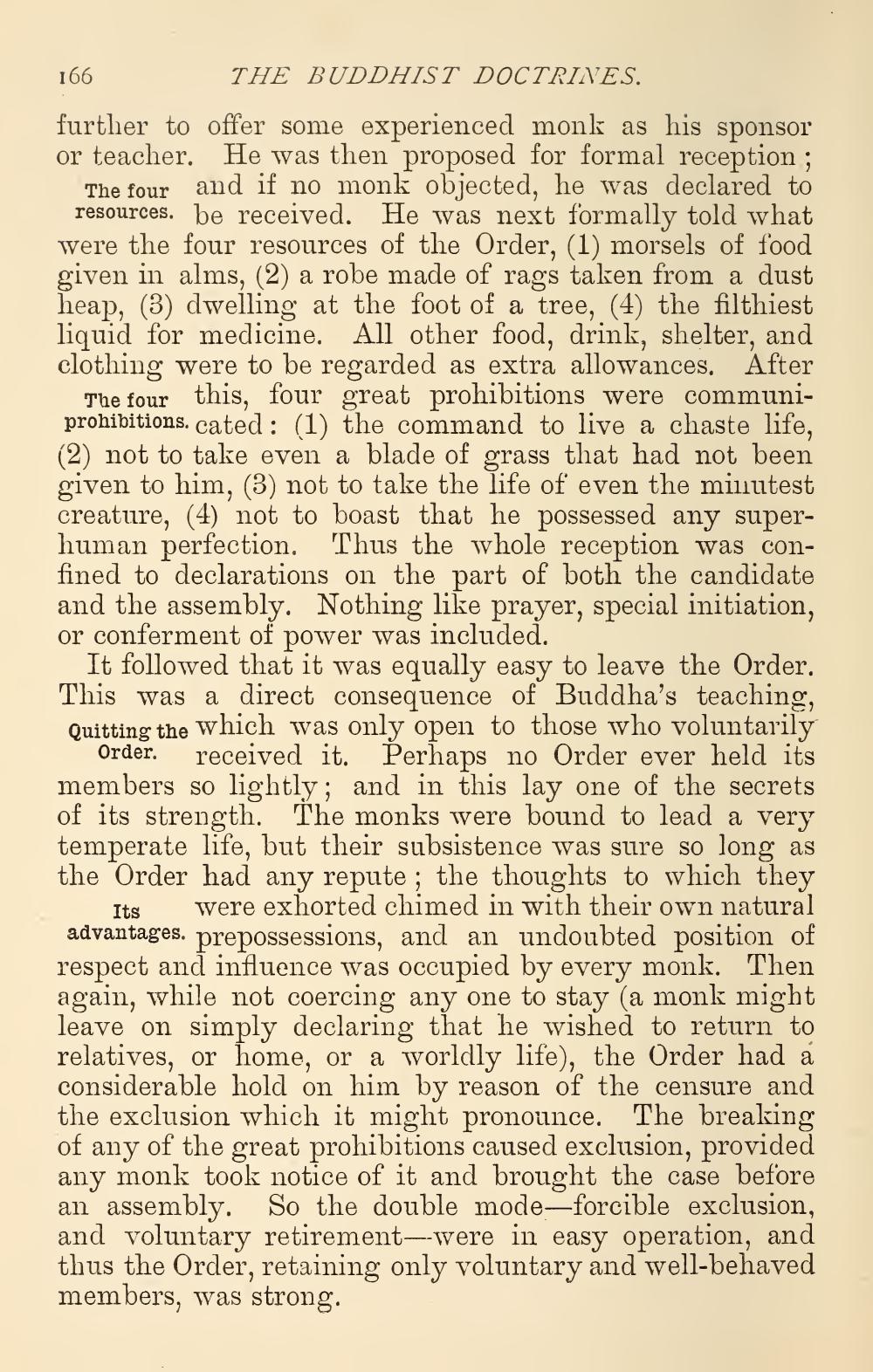________________
166
THE BUDDHIST DOCTRINES.
further to offer some experienced monk as his sponsor or teacher. He was then proposed for formal reception ;
The four and if no monk objected, he was declared to resources. be received. He was next formally told what were the four resources of the Order, (1) morsels of food given in alms, (2) a robe made of rags taken from a dust heap, (3) dwelling at the foot of a tree, (4) the filthiest liquid for medicine. All other food, drink, shelter, and clothing were to be regarded as extra allowances. After
The four this, four great prohibitions were communiprohibitions. cated: (1) the command to live a chaste life, (2) not to take even a blade of grass that had not been given to him, (3) not to take the life of even the minutest creature, (4) not to boast that he possessed any superhuman perfection. Thus the whole reception was confined to declarations on the part of both the candidate and the assembly. Nothing like prayer, special initiation, or conferment of power was included.
It followed that it was equally easy to leave the Order. This was a direct consequence of Buddha's teaching, Quitting the which was only open to those who voluntarily
Order. received it. Perhaps no Order ever held its members so lightly; and in this lay one of the secrets of its strength. The monks were bound to lead a very temperate life, but their subsistence was sure so long as the Order had any repute; the thoughts to which they
Its were exhorted chimed in with their own natural advantages. prepossessions, and an undoubted position of respect and influence was occupied by every monk. Then again, while not coercing any one to stay (a monk might leave on simply declaring that he wished to return to relatives, or home, or a worldly life), the Order had a considerable hold on him by reason of the censure and the exclusion which it might pronounce. The breaking of any of the great prohibitions caused exclusion, provided any monk took notice of it and brought the case before an assembly. So the double mode-forcible exclusion, and voluntary retirement--were in easy operation, and thus the Order, retaining only voluntary and well-behaved members, was strong.




